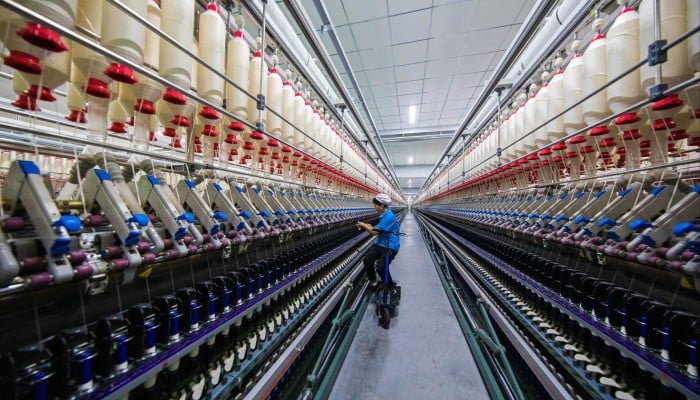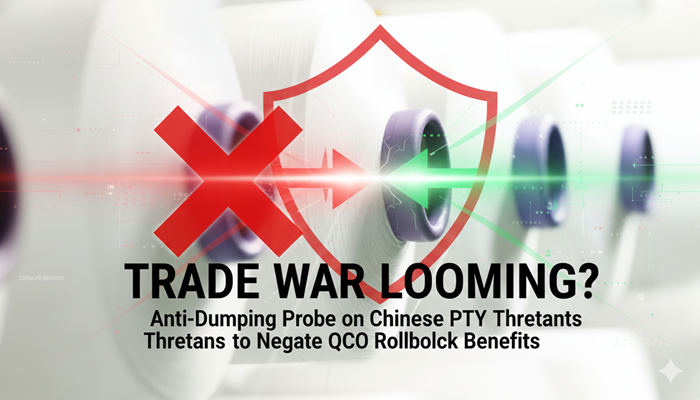
Xinjiang's textile industry has witnessed a record surge in exports despite US sanctions targeting the region's cotton production. This growth is attributed to a "revolutionary shift" powered by artificial intelligence (AI) and 5G technology.
Yarn exports rise despite sanctions
Customs data reveals a 74 per cent jump in yarn and raw material exports and a 30% rise in clothing exports from Xinjiang in 2023. This comes in stark contrast to a decline in textile exports from India and Vietnam. The increase is credited to a government-backed initiative that introduced AI and 5G into Xinjiang's mills. This resulted in a significant reduction in energy consumption and improved product quality, boosting global competitiveness.
Previously, Xinjiang's factories relied on automated spinning processes, but they lacked real-time monitoring and efficient energy management. The new AI-powered system connects all factory machinery, including air conditioners and air purification systems, optimizing energy use by over 1 per cent. AI also oversees yarn quality, preventing defects and waste.
China's extensive 5G infrastructure plays a crucial role in facilitating the rapid data transmission required for AI operations. Additionally, the cost-effectiveness of 5G technology in China makes it a viable solution for large-scale industrial applications.
Human rights a point of contention
The US government alleges forced labor practices involving Uygur Muslims in Xinjiang's cotton production. The US Uyghur Forced Labour Prevention Act (UFLPA) aims to prevent American companies from profiting from such practices. Also, the US Department of Labour emphasizes the difficulty of conducting proper due diligence in Xinjiang due to government restrictions and the absence of independent worker representation. Meanwhile, US lawmakers are considering further sanctions targeting Chinese fast-fashion retailers. Of course, China refutes these claims, calling them a fabrication intended to suppress Chinese businesses.
Meanwhile, China's Ministry of Industry and Information Technology aims to achieve digital connectivity and AI transformation in 70 per cent of the country's textile factories by 2025. Continued advancements in AI and 5G are expected to further reshape China's textile industry, including Xinjiang's production sector.












